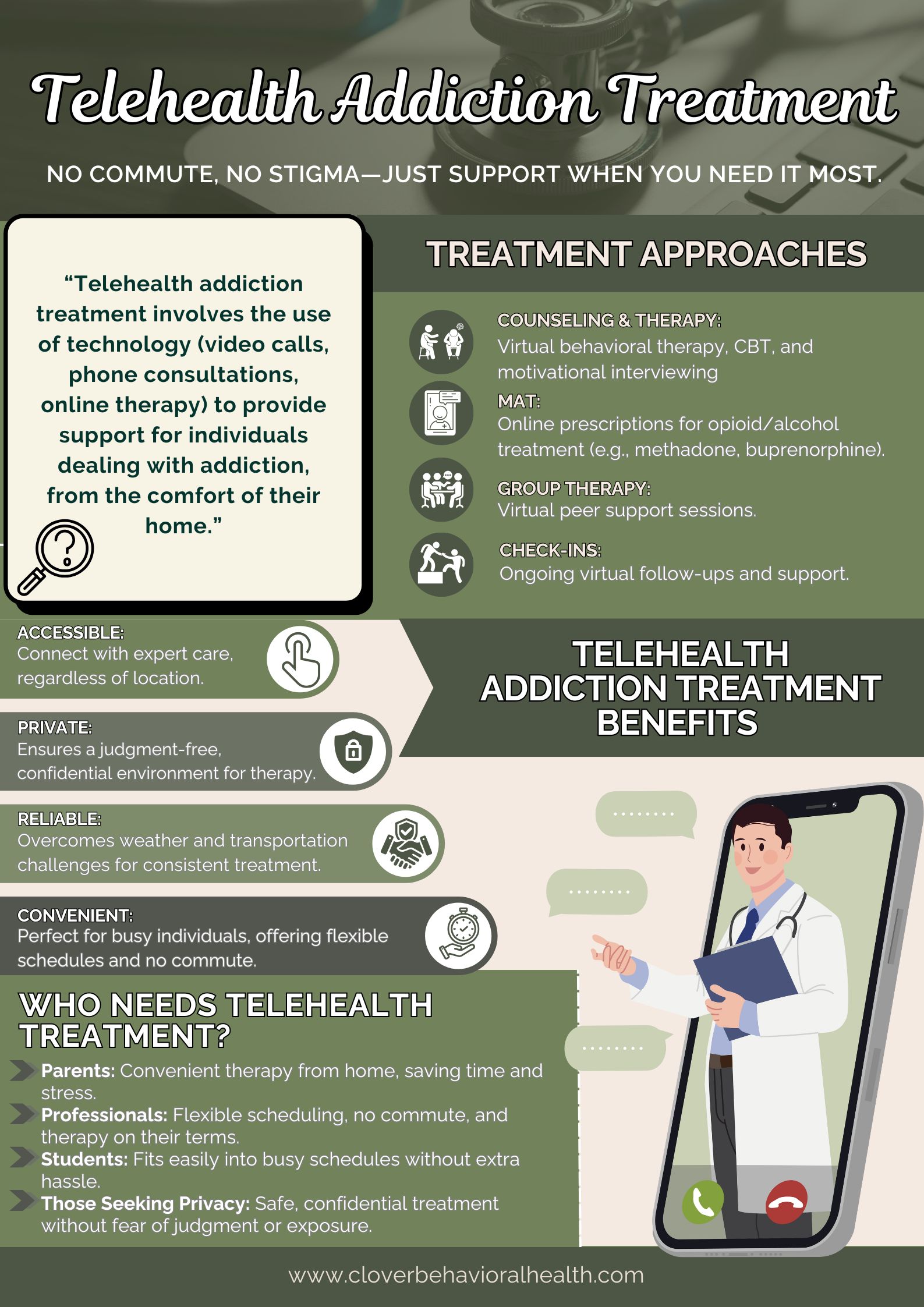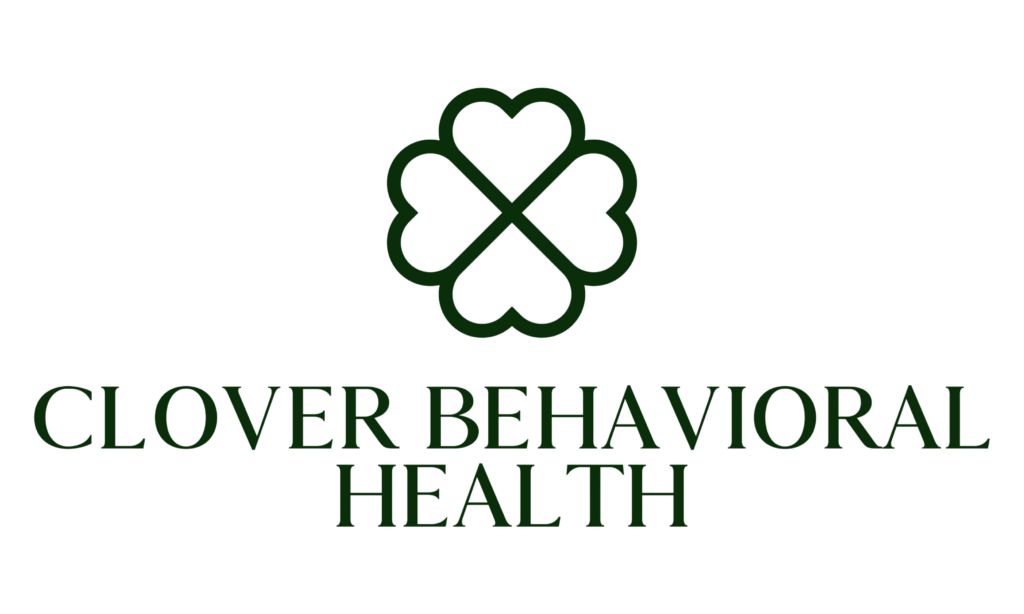From Screens to Sobriety: Why Telehealth Addiction Treatment in Concord, MA Speaks to Gen Z
Did you know that approximately 48.5 million Americans (aged 12 and older) have battled a substance use disorder in the past year? The truth is, most of those struggling are young adults (Gen Z), and their biggest barrier is not being able to connect with traditional treatment methods. Telehealth addiction treatment in Concord, MA, is stepping in to bridge the gap, but the problem we’re facing isn’t that simple.
Today, let’s talk about what’s really going on with Gen Z, and how we can meet them where they are.
The Digital Generation’s Coping Crisis
Problem 1: The Coping Skills Gap
For Gen Z, coping doesn’t look like taking a walk, journaling, or calling a friend. It, instead, looks like reaching for a screen. When anxiety, stress, or loneliness hits, the default response is to binge-watch any series, mindlessly scroll through social media, or turn to substance use.
…and that’s where our problem lies. A 2025 study by Gitnux confirms that 67% Gen Z individuals feel like they lack meaningful social connections. Without the practice of face-to-face problem solving and emotional regulation, stressors hit harder, and substance use becomes an easy escape.
Problem 2: Disconnection Behind Hyperconnection
Harvard recently conducted a study about loneliness in America and found that over 61% young adults feel ‘seriously lonely’ despite spending many hours a day online. This hyperconnected generation may be getting an illusion of a constant social life due to online interactions, but the truth is, comparison, disconnection, and exclusion are all around. This very isolation fuels unhealthy coping behaviours, and unfortunately, substance use is one of them.
Problem 3: A Mismatch With Traditional Treatment
Structured schedules, in-person visits, and phone calls – these traditional addiction treatment models were built for the older generation…and for Gen Z, these setups feel outdated and highly inaccessible. Their comfort zone is digital and flexible.
Literally, over 75% of Gen Z individuals prefer texting over any in-person conversation, especially when discussing sensitive issues like their mental health or addiction. So, even when Gen Z recognizes the need for help, they can’t reach out because it simply doesn’t align with when, where, and how they are ready to engage. The result is simply them not attending sessions properly.
And that’s the real challenge: Gen Z isn’t resisting treatment out of apathy; they’re resisting because the current system doesn’t fit the way they live, cope, or communicate.

The Consequences of Ignoring the Gap
Coping Deficit → Escalation:
The consequences of these problems are terrible – as bad as you’d expect them to be.
I mean, in 2019 alone, Massachusetts reported the highest rates (64%) of substance use in young adults (18 – 24) than any other age group or the national average altogether. This means Concord’s youth aren’t just at risk. They are more likely to turn towards substance use when stress or anxiety strikes…and as long as this coping gap remains unaddressed, the town may continue to see young adults increasingly rely on substance use to merely exist.
Disconnection → Deepening Isolation:
U.S. Surgeon General Dr. Vivek Murthy stated in his study that loneliness is the leading cause of smoking addiction, and it leads individuals to consume up to 15 cigarettes a day! In Concord, when Gen Z is more digitally connected and emotionally isolated, it is very easy to fall into long-term addiction under the false assumption of it being a coping mechanism.
Mismatch in Care → Lost Opportunities:
NIMH research confirms that around 50% of young adults fail to complete traditional outpatient programs…and honestly, we can’t blame them for it. The traditional addiction treatment methods require structure that these digital natives simply cannot follow.
This is why we believe Telehealth addiction treatment in Concord, MA can fill the gap and provide young adults with a solution within their comfort zone.
How Telehealth Addiction Treatment in Concord, MA Meets the Digital Generation Where They Are
1. Closing the Coping Skills Gap
Telehealth addiction treatment in Concord, MA, gives young adults a chance to learn practical, healthy coping strategies that go beyond scrolling or numbing out. With interactive digital tools, therapists help young adults build emotional regulation skills in the same online spaces they already turn to for comfort.
2. Rebuilding Real Connection in a Digital Space
Rather than letting hyperconnection fuel loneliness, Telehealth addiction treatment in Concord, MA flips the script. Secure video sessions, group chats, and peer support communities create real connection that fits into Gen Z’s digital lifestyle while giving them a safe space to share openly without judgment.
3. Making Treatment Relatable and Accessible
By offering flexible scheduling, text-based check-ins, and digital-first communication, Telehealth addiction treatment in Concord, MA meets young people on their terms. In Concord, MA, this means youth can actually engage in consistent treatment without the barriers of transportation, rigid schedules, or outdated communication styles.
Telehealth Addiction Treatment in Concord, MA: A New Bridge for a New Generation
Gen Z is facing a very real crisis; trying to cope in ways that don’t actually heal, feeling lonelier than ever despite constant connection, and finding that traditional care models just don’t fit their lives. But this doesn’t have to be the story that continues.
Telehealth addiction treatment in Concord, MA, bridges the gap, giving young adults the coping tools, authentic connection, and flexible care they need to break free from substance use. For the digital generation, it’s not about abandoning screens, it’s about using them to create healthier habits, stronger bonds, and a sustainable path to recovery.
So, if you or someone you love is struggling, Clover Behavioral Health is here to help. Take the first step today by calling us at 978-216-7765 and start your journey from screens to sobriety.














